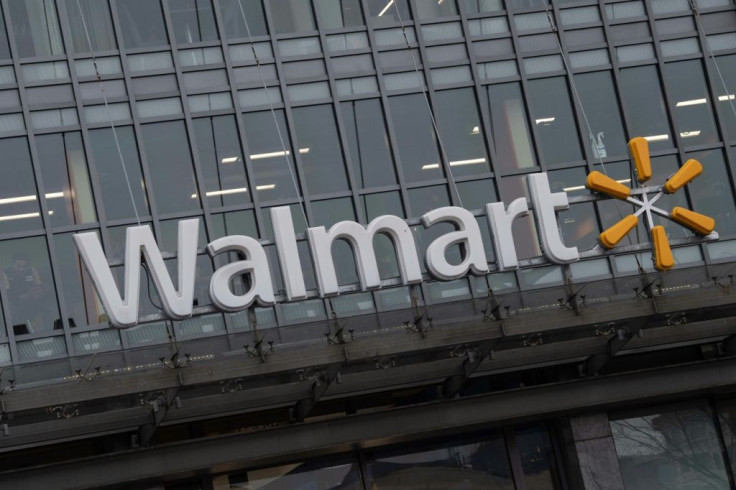Walmart To Require US Customers To Wear Face Masks
Walmart will require shoppers to wear face masks starting next week, the US retail giant announced Wednesday, joining an increasing number of businesses in mandating the protection amid the latest spike in coronavirus cases.
The move by the world's biggest retailer, which had previously only encouraged consumers to use face coverings, adds to the momentum in favor of an item broadly embraced in many countries but which has become a cultural flashpoint in the United States in its struggle with COVID-19.
Walmart said masks are "critically important" and the requirement will take effect July 20, which will give the company time to post signage and train "health ambassadors" to facilitate the new policy.
The company has more than 5,300 Walmart and Sam's Club stores in the United States and a particularly large retail presence in many of the southern and western states that have seen increases in COVID-19 cases and hospitalizations in recent weeks.
The death toll from the virus stood at 136,000 Wednesday, but the country should hit 157,000 by August 8, according to an average of models of 23 research groups in the United States and elsewhere. Some of the models estimate the death-toll will rise above 220,000 by November.
On Wednesday, Alabama became the latest state to require face masks, joining California, Texas and local governments that have mandated the coverings in recent days.
The group does not include Oklahoma, another state with spiking cases. Republican Governor Kevin Stitt confirmed Wednesday he tested positive for the virus, but said he would not impose a mandate out of concerns about individual freedom, according to news reports.
Florida and Arizona are among the large states with significant outbreaks that still don't have statewide mask mandates.
Public health officials have for months urged face coverings as a means to limit the outbreak, with studies highlighting that even cloth masks can reduce oral particle dispersion between 50 and 100 percent.
Scientists agree the virus is often spread through exposure to droplets from an infected person who sneezes or coughs, including from people showing no symptoms.

A group of 239 international scientists have also called for the World Health Organization to mitigate the risk from micro-droplets that can spread through the air far beyond the space urged in social distancing guidelines.
But mask requirements have led to friction in stores around the country, spawning numerous viral videos of irate customers clashing with retail employees.
In one case, a Michigan guard was shot and killed in May after barring a customer who was not wearing a mask.
President Donald Trump for months resisted wearing a mask and at times mocked the trend, but was finally photographed in one last weekend during a visit to Walter Reed National Military Medical Center.
Walmart described its mask policy as "a simple step everyone can take for their safety and the safety of others in our facilities," US Chief Operating Officer Dacona Smith and Sam's Club Chief Operating Officer Lance de la Rosa said in a statement on the company website.
The move was immediately championed by the National Retail Federation (NRF), which said it hoped the announcement would be a "tipping point" in the debate.
"Workers serving customers should not have to make a critical decision as to whether they should risk exposure to infection or lose their jobs because a minority of people refuse to wear masks in order to help stop the spread of the deadly coronavirus," said the NRF.
Walmart's announcement came a day after Best Buy joined the list of companies requiring face coverings, along with Starbucks, Apple and others.
Walmart was followed later Wednesday by Kroger, which announced it would require face masks at its more than 2,700 supermarkets in the United States, saying "we are taking this extra step now because we recognize additional precautions are needed to protect our country."
In recent weeks, the campaign to require face coverings has picked up support beyond public health circles, including from economists at Goldman Sachs and Dallas Federal Reserve Chief Robert Kaplan, who has championed masks as a vital step in returning the economy to health.
Walmart in April began requiring employees to wear masks but had stopped short of a mandate on shoppers. Under the new policy, the company said it would make exceptions in some cases.
© Copyright AFP 2024. All rights reserved.




















